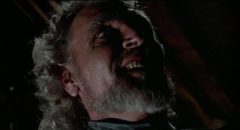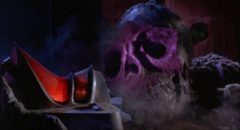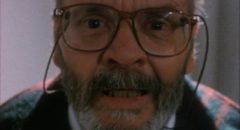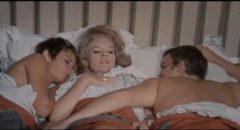
Two recent two-disk sets released by Eureka in England provide two very different forms of popular entertainment. Two Films by John Woo contains a pair of top-notch martial arts movies from the first stage of Woo’s career, before he hit it big with the gangster films of the mid-’80s, while the three movies in their Bela Lugosi/Edgar Allen Poe set present some of the most deliriously perverse horrors of the pre-Code era. While the crown jewel is Edgar Ulmer’s expressionist masterpiece The Black Cat, the set’s revelation is the Easter egg inclusion of a “virtual director’s cut” of Robert Florey’s Murders in the Rue Morgue, which follows Tim Lucas’ suggestions, based on internal evidence, or what the film might have been before studio tampering made it a disjointed mess.









